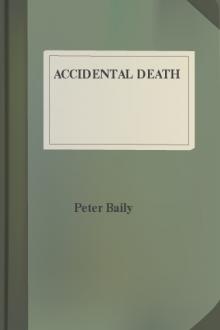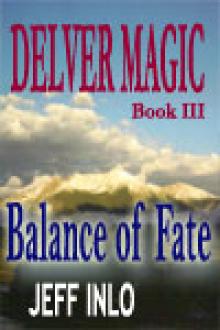Eco: Foucalt's Pendulum by eco foucault (important books to read .txt) 📗

- Author: eco foucault
Book online «Eco: Foucalt's Pendulum by eco foucault (important books to read .txt) 📗». Author eco foucault
Our meeting with theabbess of the terreiro was calm, cordial, civilized, and rich infolklore. She was a big black woman with a dazzling smile. At firstyou would have said she was a housewife, but when we began talking,I understood how women like this could rule the cultural life ofSalvador.
"Are the orixas peopleor forces?" I asked her. The mae-de-santo answered that they wereforces, obviously: water, wind, leaves, rainbows. But how did sheprevent ordinary people from seeing them as warriors, women, saintsof the Catholic Church? "Do you yourselves not also worship acosmic force in the form of virgins?'' she replied. The importantthing is to venerate the force. The aspect of the force must fiteach man's ability to comprehend.
She invited us to visitthe chapels in the garden before the rite began. In the garden werethe houses of the orixas. A swarm of black girls in Bahian dresswas cheerfully gathered there, making the finalpreparations.
The houses of the orixaswere arranged around the garden like the chapels of a sacred mount.Outside each one was displayed the image of the correspondingsaint. Inside, the garish colors of flowers clashed with those ofthe statues and the just-cooked foods offered to the gods. Whitefor Oxala, blue and pink for Yemanja, red and white for Xang5,yellow and gold for Ogun...Initiates kneeled and kissed thethreshold, touching themselves on the forehead and behind theear.
"But is Yemanja Our Ladyof the Conception or not?" I asked. "Is Xango Saint Jerome ornot?"
"Don't ask embarrassingquestions," Aglie advised. "It's even more complicated in anumbanda. Saint Anthony and Saints Cosmas and Damian are part of theOxala line. Sirens, water nymphs, caboclas of the sea and therivers, sailors, and guiding stars are part of the Yemanja line.The line of the Orient includes Hindus, doctors, scientists, Arabsand Moroccans, Japanese, Chinese, Mongols, Egyptians, Aztecs,Incas, Caribs, and Romans. To the Oxossi line belong the sun, themoon, the caboclo of waterfalls, and the caboclo of the blacks. Inthe Ogun line we come upon Ogun Beira-Mar, Rompe-Mato, lara, Mege,Na-ruee...In other words, it all depends."
"Jesus," Amparo saidagain.
"Oxala, you mean," Imurmured to her, my lips brushing her ear. "Calm down. Nopasaran."
The ialorixa showed us aseries of masks that some acolytes were bringing into the temple.These were big straw dominoes, or hoods, which the mediums wouldput on as they went into a trance, falling prey to the divinity.This was a form of modesty, she explained. In some terreiros thechosen danced with their faces bare, letting onlookers see theirpassion. But the initiates should be shielded, respected, removedfrom the curiosity of the profane or anyone who cannot understandthe inner jubilation and grace. That was the custom in thisterreiro, she said, and that was why outsiders were not readilyadmitted. Maybe someday, she remarked, who knows? We might wellmeet again.
But she didn't want usto leave without sampling some of the comidas de santo¡Xnot fromthe corbeils, which had to remain intact until the end of the rite,but from her own kitchen. She took us to the back of the terreiro,where there was a multicolored banquet of manioc, pimento, coco,amendoim, gengibre, moqueca de siri-mole, vatapa, ef6, caruru,black beans with farofa, amid a languid odor of African spices,sweet and strong tropical flavors, which we tasted dutifully,knowing that we were sharing the food of the ancient Sudanese gods.And rightly so, the ialorixa told us, because each of us, whetherhe knew it or not, was the child of an orixa, and often it waspossible to tell which one. I boldly asked whose son I was. Theialorixa demurred at first, saying she couldn't be sure, but thenshe agreed to examine the palm of my hand. She looked into my eyesand said: "You are a son of Oxala."
I was proud. Amparo, nowrelaxed, suggested we find out whose son Aglie was, but he said hepreferred not to know.
When we were home again,Amparo said to me: "Did you see his hand? Instead of the life line,he has a series of broken lines. Like a stream that comes to astone, parts, and flows together again a meter farther on. The lineof a man who must have died many times."
"World champion of themetempsychosis relay."
"No pasaran," Amparosaid, laughing.
29
Simply because theychange and hide their names, do not give their right age, and bytheir own admission go about without allowing themselves to berecognized, there is no logic that can deny that they necessarilymust exist.
¡XHeinrich Neuhaus, Piaet ultimissima admonestatio de Fratri-bus Rosae-Crucis, nimirum: ansint? quotes sint? unde nomen Mud sibi asciverunt, Danzig,Schmidlin, 1618; French ed. 1623, p. 5
Diotallevi used to saythat Hesed was the Sefirah of grace and love, white fire, southwind. The other evening in the periscope, I thought that those lastdays with Amparo in Bahia belonged under that sign. You remember somuch while you wait for hours and hours in the darkness. Iremembered especially one of the last evenings. We had walkedthrough so many alleys and squares that our feet ached, and we wentto bed early, but we didn't feel like sleeping. Amparo, huddledagainst the pillow in the fetal position, was pretending to readone of my little pamphlets on the umbanda, propping it on herknees. From time to time she would roll lazily onto her back, legsspread, the book balanced on her belly, listening to me read fromthe book on the Rosicrucians. I was trying to involve her in mydiscoveries. It was a mild evening; as Belbo, exhausted withliterature, might have put it in one of his files, there was noughtbut a lovely sighing of the wind. We had splurged on a good hotel;there was a view of the sea from the window, and the still-lightedcloset kitchen offered the comforting sight of the basket oftropical fruit we had bought at four that morning.
"It says that in 1614 ananonymous work appeared in Germany entitled Allgemeine und generalReformation, or General and common Reform of the entire Universe,followed





Comments (0)